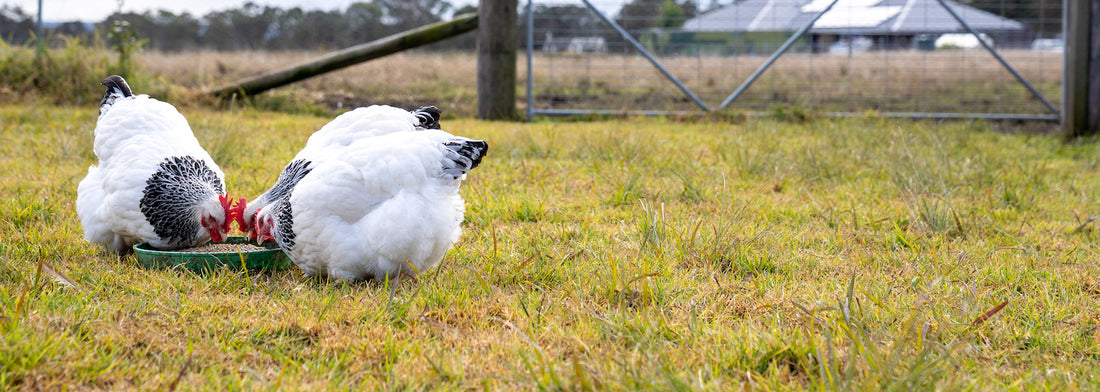One of the best things about keeping chickens is the ability to collect eggs from your own backyard. But how do we take care of egg laying chickens so that they produce the best possible eggs?
Feed
First and foremost, we need to look at what we are feeding egg laying hens. Ensuring hens are receiving a balanced diet is paramount as this will support their egg laying production as well as the overall health of the chicken.
Selecting a good quality chicken feed that is packed with whole grains, vitamins and minerals should be your first step. A poor quality diet can lead to a lack of nutrition and inability to sustain health which can ultimately impact laying frequency.

Whilst high calcium diets should not be fed prior to laying, feeding a higher calcium intake once egg production commences does support the development of the eggs. You should look for a high quality all purpose layer mix, such as our layer/breeder, that has been scientifically formulated with laying hens in mind and contains lime grits in the blend which can easily be selected out by the chooks. The advantage of the grits is that it remains in the gizzard to help with grinding the feed and facilitates a continuous slow release of calcium during the night to support egg shell formation overnight.
Chickens should also have daily access to fresh green grass. As an essential source of fibre, it is good for chickens' gut health and the pigments (xanthophylls) in green grass will contribute to egg yolk colour. Free range and pasture raised chickens have proven to produce a much higher nutrient density in their eggs. So giving your chickens as much time to roam outside as possible will help you bring out the best egg laying hens!
Maintaining the correct balance of salty materials is also important for egg laying chickens electrolyte balance, which includes sodium (Na), potassium (K) and chlorine (Cl). Any imbalance of these may cause wet droppings and poor shell quality. You also want to avoid feed that contains nasty ingredients like toxic weed seeds, mouldy materials and chemical contaminants/residues.
Water
Egg laying chickens, and all poultry for that matter, should always have access to cool, fresh drinking water. Drinkers should be checked daily and cleaned and flushed regularly to ensure they are free from microbial and mineral build ups.
Breed

Another point to consider when trying to develop the best egg producing chickens is the breed of laying hens. It is well known that some chicken breeds are better suited to laying eggs than others as production quantity and size varies greatly from breed to breed.
The best breed of chicken for laying eggs is, in our opinion, Leghorns. We love them for their egg production capabilities, as they lay around 280 eggs a year and their large white egg can weigh up to 80 grams in our experience.
Other great egg laying breeds include Light Sussex, Australorps, Rhode Island Reds, Welsummers and most mediterranean breeds. To learn more about the breeds we recommend for egg laying purposes watch the video below.

